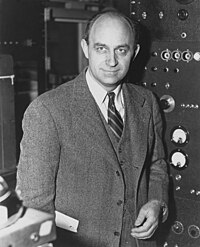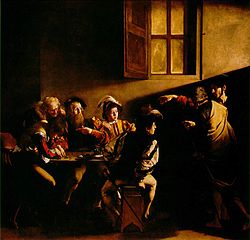Portal:Italy
From Wikipedia, the free encyclopedia.
Culture | Geography | History | Mathematics | People | Science | Society | Technology
Alphabetical Index · Browse Articles · Browse Categories · Browse Portals · Other Indexes
Italy (Italian: Repubblica Italiana or Italia) is a country in southern Europe. It comprises a boot-shaped peninsula and two large islands in the Mediterranean Sea, Sicily and Sardinia, and shares its northern alpine boundary with France, Switzerland, Austria and Slovenia. The independent countries of San Marino and the Vatican City are enclaves within Italian territory.
The language spoken in Italy is Italian. The population of Italy is 58,462,375 (Jult 2005 est.) The capital city is Rome.
Antonio Lucio Vivaldi (March 4, 1678, Venice – July 28, 1741, Vienna), nicknamed Il Prete Rosso, meaning "The Red Priest," was an Italian priest and baroque music composer.
He is considered one of the composers who brought Baroque music (with its typical contrast among heavy sonorities) to evolve into an impressionist style. Vivaldi has been also indicated as a precursor of romantic musicians. Johann Sebastian Bach was deeply influenced by Vivaldi's concertos and arias (recalled in his Passions and cantatas). Bach transcribed a number of Vivaldi's concertos for solo keyboard, along with a number for orchestra, including the famous Concerto for Four Violins and Violoncello, Strings and Continuo (RV 580). However, not all the musicians showed the same enthusiasm: Igor Stravinsky provocatively said that Vivaldi had not written hundreds of concertos, but one concerto, repeated hundreds of times.
Vivaldi's music, together with Mozart's, Tchaikovsky's and Corelli's, has been included in the theories of Alfred Tomatis on the effects of music on human behaviour, and used in music therapy.
The Piazza del Campo is in the center of Siena and Siena's premier square. The Piazza del Campo is shell shaped, symbolically uniting the different levels formed by the conjunction of the three hills on which the city was founded. Paved in red brick and marble, the site was built in the 13th c. and is one of Europe's greatest medieval squares. It contains the Palazzo Pubblico and the Torre del Mangia.
edit ...the famous biblical period movies Pier Paolo Pasolini’s "The Gospel According to St. Matthew" (1964), Bruce Beresford’s "King David" (1985) and Mel Gibson’s "The Passion of the Christ" (2004) were filmed in Matera?
Enrico Fermi (September 29, 1901 – November 28, 1954) was an Italian-born physicist of United States citizenship most noted for his work on beta decay, the development of the first nuclear reactor, and for the development of quantum theory.
In 1938, Fermi won the Nobel Prize in Physics for his "demonstrations of the existence of new radioactive elements produced by neutron irradiation, and for his related discovery of nuclear reactions brought about by slow neutrons".
The XX Olympic Winter Games will be held in Turin, Italy from February 10 to 26 in 2006. This will be the second time that Italy will host the Olympic Winter Games, as it hosted the VII Olympic Winter Games in Cortina d'Ampezzo in 1956, and the third time overall that Italy will host an Olympic Games, as it also staged the Games of the XVII Olympiad in Rome in 1960.
- 20 October 2005:The next political election in Italy, for the election of the two house Italian Parlament, should take place on April 9, 2006.
- 7 October 2005:Italian journalist Giuliana Sgrena has suggested that it was "no accident" when US troops shot at her car, resulting in the death of an Italian intelligence officer who had helped to secure her release from captivity earlier that day.
- 23 September 2005:The Italian Minister of the Economy, Domenico Siniscalco, resigned from his position in the Goverment on Thursday.
- 22 September 2005:The London bomb suspect, Hussain Osman, also known as Hamdi Issac, has arrived in London and been arrested following his extradition from Italy.
edit Italy • Archaeology • Architecture • Cities • Communications • Conservation • Culture • Economy • Education • Geography • Government • History • Law • Lists • Media • Military • People • Politics • Regions • Religion • Science and Technology • Society • Sport • Subdivisions • Tourism • Towns • Transportation •
The Calling of St Matthew
Caravaggio
(1599 - 1600), Oil on canvas
Contarelli Chapel, Church of San Luigi dei Francesi, Rome
The Battle of Algiers (in Italian, La Battaglia di Algeri) is a 1966 black-and-white film by Gillo Pontecorvo based on the Algerian War of Independence from 1954 until 1962 against the French occupation.
The film depicts an episode in the war of independence in the then French colony of Algeria, in the capital city of Algiers.
edit Foucault's Pendulum (original title: Il pendolo di Foucault) is a 1988 novel by Italian novelist and philosopher Umberto Eco. Its theme is the popularity of conspiracy theories throughout time, as well as their constant presence as a form of pseudo-religion. The book also states the impossibility of the search for true esoteric and hidden wisdoms. It is divided into ten segments represented by the ten Sefiroth.










